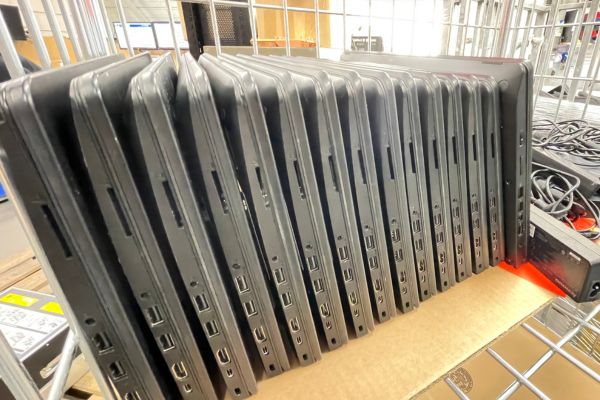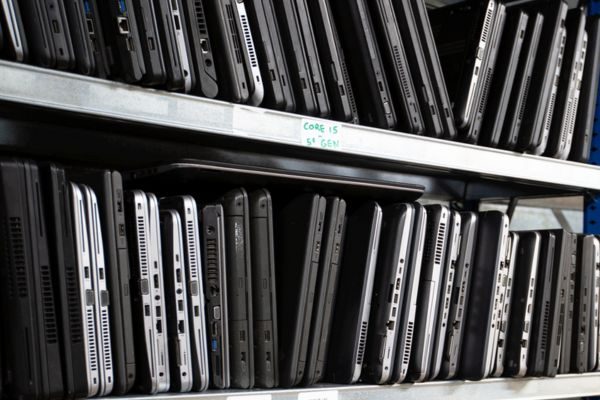How does the laptop buyback process work?
If you’ve chosen to trade in your old laptops for cash, you’ll want to know how the process works. The laptop buyback process is designed to be simple and efficient, focused on maximizing your return and minimizing your effort. In this section, we’ll discuss the important steps you need to take for a successful laptop buyback and what happens after you’ve turned in your laptops. These insights will help you make an informed decision and understand how your old devices are processed in a sustainable way.
Steps for a successful laptop purchase
Before you start the process of buying laptops, it is crucial to have a good plan. At E-Waste Nederland we start with a thorough inventory of your current hardware. It is advisable to make a list of all old laptops that you want to hand in, including brand, model and technical specifications. This information helps us to make an accurate market-conform pricing, which leads to a fair compensation for your used equipment.
We then ensure smooth logistical handling. Our ICT collection service can collect your old laptops directly from your company, so you don’t have to spend time transporting equipment. This is particularly useful for companies that work with large quantities or are located in multiple locations.
Another important aspect is data erasure. Before hardware is processed, it is essential that all sensitive data is erased. At E-Waste Nederland we offer certified data destruction, which means that all your customer and company data is securely erased. This not only protects your company reputation, but also ensures that you comply with the relevant data regulations.
Once the inventory is complete and the data removal has been carried out, the final step is taken in the price negotiation. Thanks to our expertise and market knowledge, we can offer you a competitive and fair price for your old laptops. We update our prices regularly, so that you always benefit from the best price-quality ratio.
The entire process, from start to finish, is designed to unburden businesses, where you do not have to worry about sales channels or negotiations with individual buyers. In summary, a structured plan and a reliable partner such as E-Waste Nederland ensures that you can sell your old laptops in the most efficient way.
What happens after returning laptops?
After you have turned in your old laptops, processing this equipment is an essential part of the laptop buying process. At E-Waste Nederland we work carefully to ensure that each device can get an environmentally friendly second life, if possible.
The first step after receiving your laptops is a thorough evaluation of their technical and cosmetic condition. This assessment provides insight into the possibilities for repair and resale, or in some cases recycling of components. Any device that is still functional enough is repaired and refurbished if necessary so that it can be sold again. This process not only supports reuse but also the reduction of e-waste. Laptops that are in too poor a condition for repair are disassembled so that the individual components can be recycled responsibly. Here, laptop recycling plays an important role in ensuring that valuable materials such as metals and plastics can be reused.
For the entire processing we rely on certified IT recycling procedures, which means that our approach is not only effective but also ethical. If there is still data on the devices, it is securely erased by our certified data erasure, as discussed earlier. In this way, we not only help companies to dispose of their old equipment efficiently, but also to achieve their environmental goals.
It is important to note that, in addition to the financial benefit, the process of buying back laptops contributes to the promotion of sustainable business models and social responsibility. By working with us, you bring your company closer to achieving environmental and profitability goals. Whether it is buying back hardware or the proper disposal of other devices, we facilitate a simple and effective solution for the handling of written-off IT equipment.


